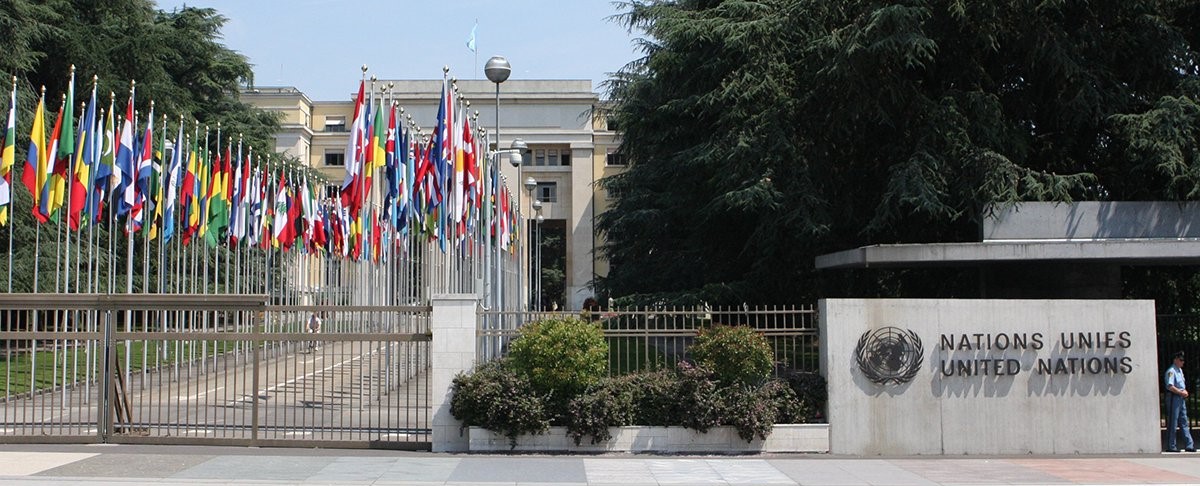As nuclear abolition campaigners around the world were gearing up for annual Hiroshima and Nagasaki Day commemorations, governments and a few civil society representatives gathered at the Palais des Nations in Geneva to discuss the draft report of the UN open-ended working group (OEWG) to take forward nuclear disarmament negotiations.
The OEWG will meet for 4 or 5 days over the next two weeks, with the aim to adopt the report on August 19 to submit to the UN General Assembly.
There is considerable momentum in the OEWG for a proposal to commence multilateral negotiations in 2017 on a legal agreement or agreements to prohibit and eliminate nuclear weapons. However, the support for such negotiations is so-far coming only from non-nuclear States, and even some of them doubt the value of such negotiations if there is no participation of nuclear-armed States or those under extended nuclear deterrence relationships.
Some argue that a nuclear ban treaty adopted only by non-nuclear States would add nothing to the Non-Proliferation Treaty (NPT), under which the non-nuclear States are already obliged not to possess nuclear weapons. On the other hand, those supporting a ban treaty argue that non-nuclear States have waited for too long for the nuclear States to agree to nuclear disarmament negotiations, and it’s time to act now, even if the nuclear-armed States are not ready to come to the table.
Novel proposal – NPT amendment conference
The Basel Peace Office (BPO) submited a proposal on Friday which could bridge the two positions. The proposal, if enacted, would ensure that the key nuclear-armed countries have to meet with non-nuclear States to consider a nuclear weapons ban, but would not give them the power to block multilateral negotiations to achieve a ban.
BPO proposed that an amendment conference of the NPT be held, with an amendment that could turn the NPT into a simple nuclear prohibition treaty. If 1/3 of the States Parties to the Non-Proliferation Treaty call for such a conference, the NPT depository states (Russia, the UK and the US) have to hold the conference and invite all NPT members to attend.
Such an NPT conference would ensure that NPT members have to consider the proposal for a ban treaty, and would therefore build support for the nuclear prohibition negotiations which are likely to be established by the United Nations.
A similar strategy was used in 1991 to establish a global ban against nuclear tests. States parties to the Partial Test Ban Treaty called for an amendment conference to turn the PTBT into a CTBT, and this was instrumental in moving the nuclear armed States to agree to negotiate a comprehensive nuclear test ban treaty (CTBT).
BPO also called on the OEWG to recommend that nuclear-armed States adopt no-first-use policies as an interim step to a comprehensive nuclear prohibition agreement. Two of the nuclear-armed States have already adopted such policies (China and India) and President Obama is considering this as a next step for the United States.
General OEWG debate
On Friday, participants in the OEWG shared general views, before going into detail on text of certain parts of the draft report. Participants in the discussion included Algeria, Argentina, Australia, Austria, the Basel Peace Office, Brazil, Canada, Chile, the Community of Latin American and Caribbean States (CELAC), Costa Rica, Ecuador, Egypt, El Salvador, Fiji, Finland, Germany on behalf of a group of ‘progressive’ states, Guatemala, ICAN, the International Fellowship for Reconciliation, Indonesia on behalf of a group of states, Iran, Ireland, Kenya, Malaysia, Mexico, Nigeria, Norway, South Africa, Sweden, Switzerland and UNFOLD ZERO.
UNFOLD ZERO, reported on the Chain reaction of civil society actions for nuclear abolition around the world, especially those for Hiroshima and Nagasaki Days. UNFOLD ZERO presented the Hiroshima Appeal for a Total Ban on Nuclear Weapons to the OEWG, and called on the final OEWG report to recognise the contribution civil society has been making to the OEWG.Air Jordan 1 Mid Bred Gym Red/Black-White For Sale

